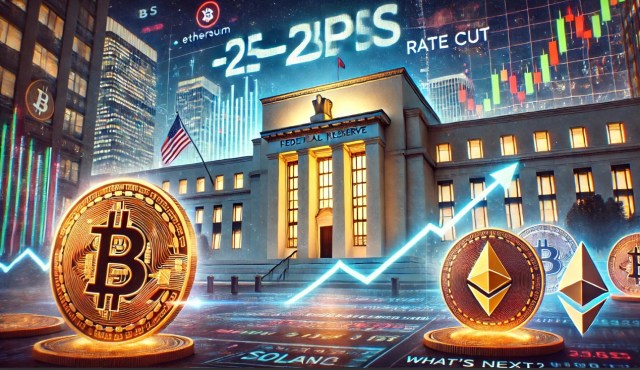Berkshire Hathaway posted a sharp 34% jump in third-quarter operating earnings, hitting $13.485 billion, while its cash stash ballooned to an all-time high of $381.6 billion.
According to its earnings report, this massive profit surge came from a more than 200% surge in insurance underwriting income, which totaled $2.37 billion.
But while the cash keeps piling up, Warren Buffett is refusing to deploy it. Not a single share was repurchased in the first nine months of 2025, even with the stock down.
Investors were hoping for buybacks. They got silence instead.
Despite Class A and B shares gaining 5% year-to-date, the S&P 500 is up 16.3%, and Berkshire’s performance is falling behind. The company net sold equities in Q3, locking in $10.4 billion in taxable gains instead of scooping up stocks.
That move says one thing loud and clear: Warren saw no value out there. This kind of caution is raising eyebrows. Especially now, with Berkshire sitting on a cash pile bigger than the GDP of some countries and refusing to spend it.
Buffett’s exit triggers sell-off as Abel prepares to take over
Warren, who turns 96 soon, announced in May that he’s stepping down as CEO at the end of 2025 after more than six decades at the helm.
He’s keeping the chairman title, but Greg Abel, the vice chair in charge of non-insurance operations, is next in line for CEO. Greg will also be the one writing the company’s shareholder letters starting in 2026.
This changing of the guard sent the stock into a slide. On May 2, just before Warren’s announcement at the annual meeting, Berkshire’s B shares hit an all-time high, closing just under $540.
At that point, they were beating the S&P 500 by 22.4 percentage points. But after the CEO bombshell, the B shares dropped 11.5%. That’s still above the lows in August, when they were down almost 15%, but far off the $507 closing high seen on September 4.
The underperformance gap versus the S&P narrowed slightly to 10.9 percentage points as of Friday, from a 12.2-point difference midweek, the widest gap so far this year.
Wall Street didn’t react well. On October 26, analysts Meyer Shields and Jing Li at Keefe, Bruyette & Woods downgraded Berkshire’s Class A shares to “underperform”, slashing their price target from $740,000 to $700,000.
The stock ended the week at $715,740. Their report, titled “Many Things Moving in the Wrong Direction,” pointed to a long list of concerns.
They flagged the likely peak of GEICO’s underwriting margins, falling catastrophe reinsurance prices, lower short-term rates, tariff-related problems hitting the railroads, and the looming loss of tax credits for alternative energy.
According to them, all these combined are expected to drag down performance over the next year. They said the stock’s lagging performance compared to peers is “mostly” the result of Warren’s decision to step aside.
New leadership brings trust issues as Berkshire avoids forecasts
Investors are worried about what they’re calling Berkshire’s “unique succession risk.” The company doesn’t follow the usual corporate playbook. It doesn’t release forecasts. It doesn’t take analyst questions.
People tolerated that because Warren was running the show. Shields and Li wrote, “Buffett’s likely unrivaled reputation and what we see as unfortunately inadequate disclosure” could push investors away once he’s no longer the day-to-day guy.
There’s also the fading of the so-called “Buffett premium,” the added value traders attach to Berkshire simply because Warren is at the top. The Wall Street Journal captured the shift, quoting Shields:
But not everyone agrees with the panic. Chris Bloomstran, president of Semper Augustus Investments Group, said Berkshire was overpriced heading into the May meeting anyway. He noted that the stock is still up over 5% in 2025, while Progressive, a major GEICO rival, is down 14%.
Chris has been buying and believes Warren’s exit isn’t the reason for the decline. “Everybody I know inside the Berkshire world has nothing but rave reviews and good things to say about Greg,” he told the Journal.
Henry Asher from Northstar Group shares the sentiment, as he believes Greg doesn’t need to match Warren’s stock-picking record for Berkshire to keep making money. “You’re not going to cancel your shipment on the Burlington Northern because Buffett isn’t there. The businesses will continue to produce mammoth amounts of cash flow, with or without Buffett.”
OxyChem deal becomes the biggest move since Alleghany
While Berkshire stayed away from share repurchases and the broader equity market, it still made one large acquisition.
In October, the company agreed to buy Occidental Petroleum’s petrochemical unit, OxyChem, for $9.7 billion in cash. This is the biggest deal since 2022, when Berkshire bought Alleghany for $11.6 billion.
The move doesn’t change the fact that for most of 2025, Warren stayed out of the market and let the company’s cash swell to record highs.
On top of the $13.485 billion in operating profit, Berkshire’s total Q3 earnings, which also include gains from public stock holdings, rose 17% to $30.8 billion.
That puts the total numbers up big for the year, even though the stock is down and analysts are worried.
Get seen where it counts. Advertise in Cryptopolitan Research and reach crypto’s sharpest investors and builders.
Source: https://www.cryptopolitan.com/berkshire-hathaway-earnings-surge-by-34/


